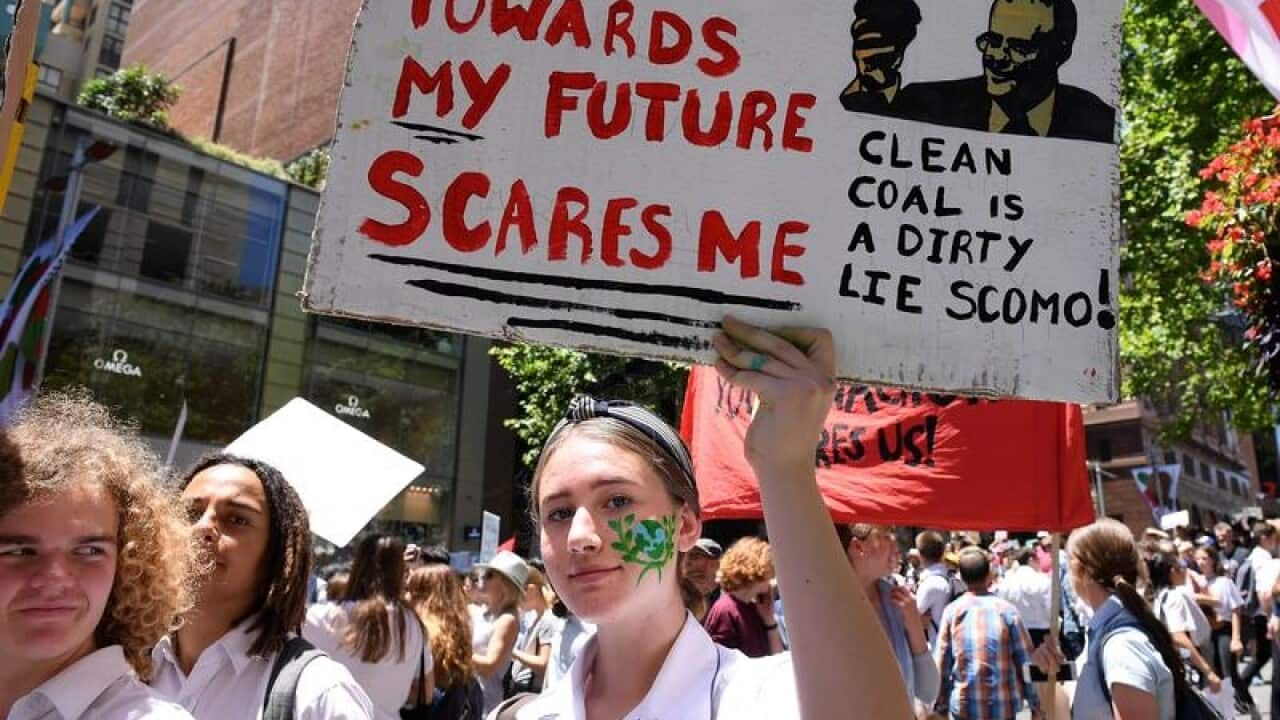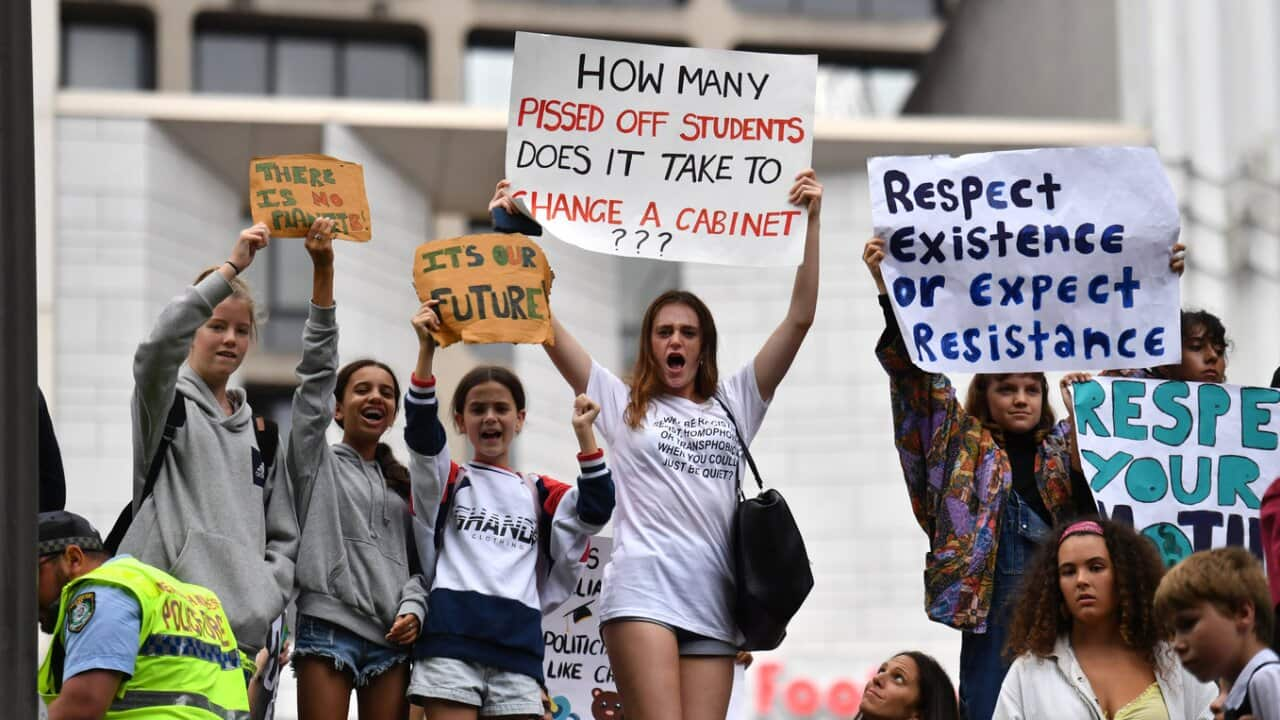Striking: The boss and his employees
On any other Friday, Simon Sheikh and his staff would be busy at work in Sydney's CBD. But this week, on 20 September, the superannuation company’s office will be empty.
Mr Sheikh, chief executive of sustainable company Future Super, is part of a growing group of business leaders who are
“Our employees came to us and said they wanted to attend the student climate marches,” he told SBS News, as staff finished painting signs saying “walking off my job until you do yours” and “renewable energy powered by this strike” to take to the march.
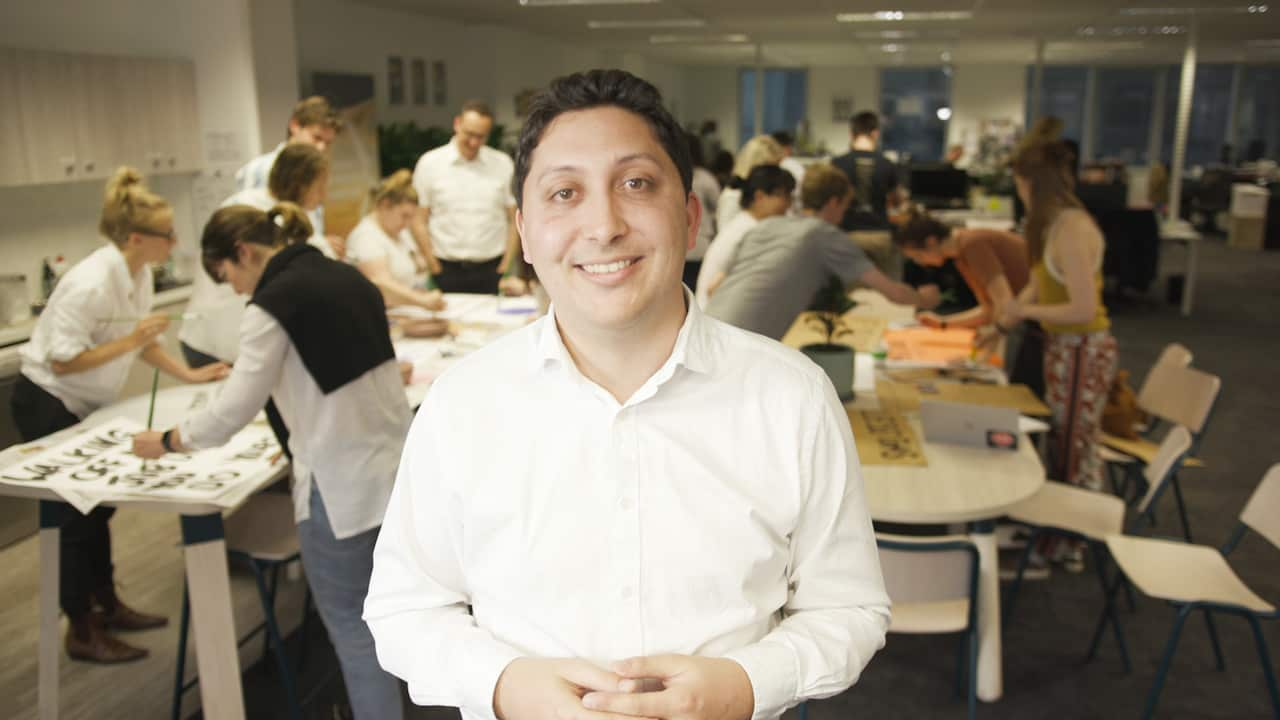
Simon Sheikh, chief executive of Future Super. Source: SBS News
“And of course, we said yes, we decided, in fact, to close down for the day and get deeply involved in this campaign.”
While the School Strike for Climate movement - which saw approximately 15,000 Australians turn up for the first national strike in November 2018 - continues to be led by school students, people of all ages are now participating at events happening across the world ahead of the UN emergency climate summit on 23 September.
Mr Sheikh has been leading an effort to encourage other businesses to shut up shop during the strikes, with a campaign called ‘Not Business as Usual’.
So far, more than 1,400 businesses have signed up, including tech company Atlassian and Ben and Jerry’s, which will be closing its ice cream stores around the world for the duration of the strikes.
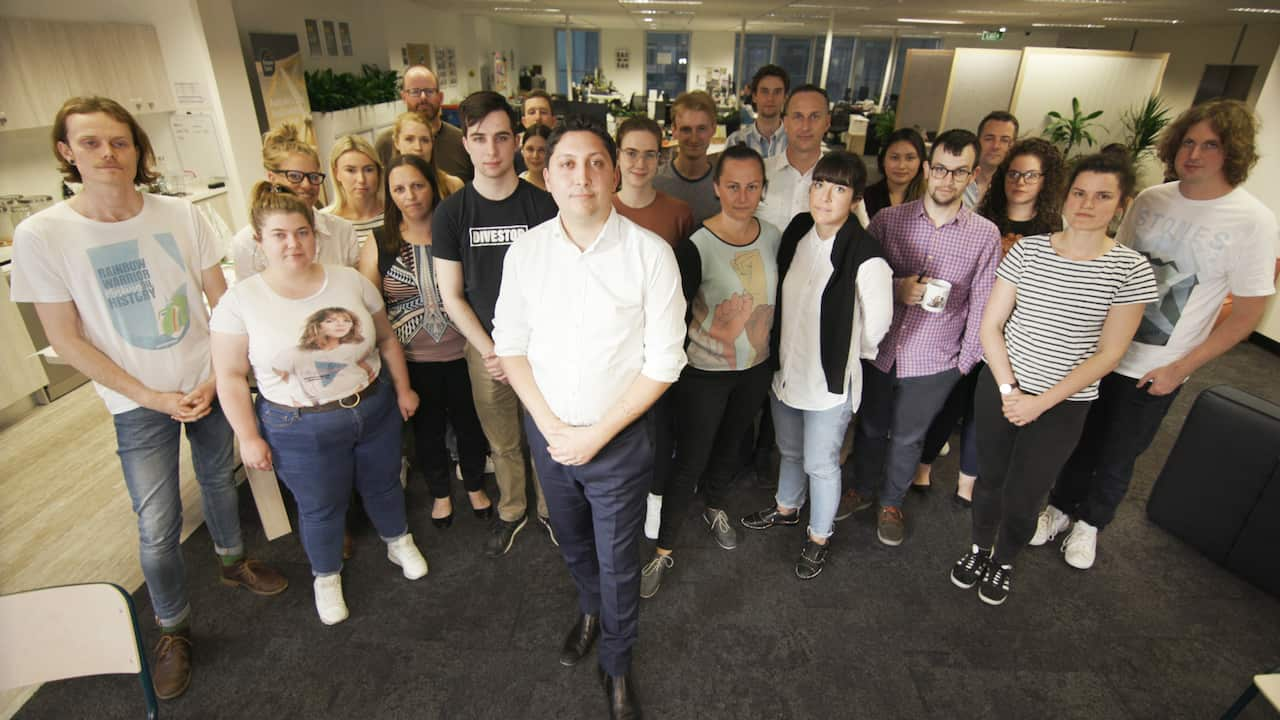
Mr Sheikh and his staff will be striking together on Friday. Source: SBS News
“I’ve got a son, four years old, and frankly I get really worried when I think about his future. And the thing that gives me hope is the knowledge that he and the rest of us can actually do something about this,” Mr Sheikh said.
“In the business world, we are particularly vulnerable. Many of us own infrastructure assets that are prone to be affected by sea-level rise, others are employers that are on the front line of the energy transition. Everybody in business is affected by this … at some point, surely our government has to wake up and realise we are all on board.”
Striking: The schoolgirl and her family
Year 11 student and one of the School Strike for Climate organisers, Daisy Jeffrey, said seeing businesses, unions and university students getting involved in the strike “is an incredible sign of what young people can do”.
“It’s been just insane to see the amount of support we’ve received and what we’ve been able to do to mobilise people who thought they didn’t have the excuse or time to get involved in the climate movement,” she said.
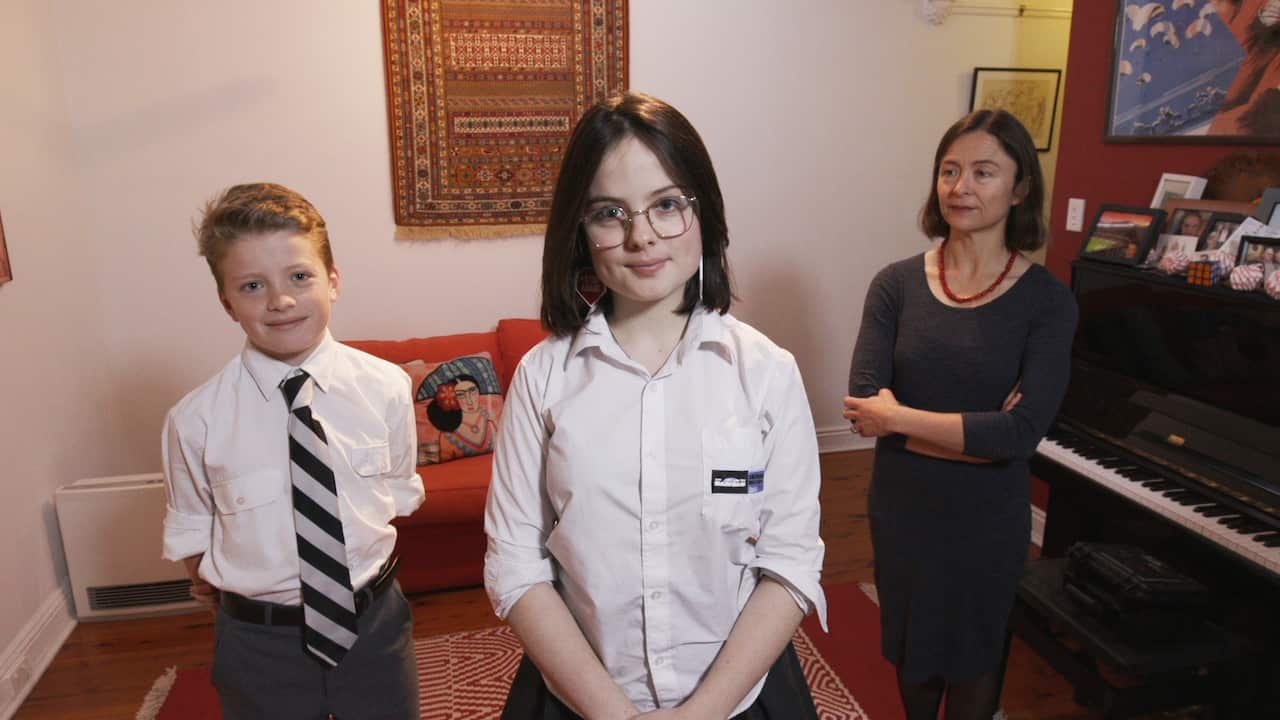
Daisy and her younger brother Leo and mum, Annabel. The whole family will be striking on Friday. Source: SBS News
Daisy, 17, has been involved with the movement since the first Australian School Strike for Climate and will be one of the hosts of the Sydney rally, which more than 10,000 people are expected to attend.
Among the crowd will be Daisy’s parents and her younger brother, who, inspired by her activism, are also taking the day off work and school.
“It’s really quite devastating to hear the fear that both of my children have for their future,” Daisy’s mother Annabel McGilvray said.
“It seems like a nightmare story, as opposed to a bedtime story for them … and to [see them] feel that burden at such a young age is quite heart-wrenching.”
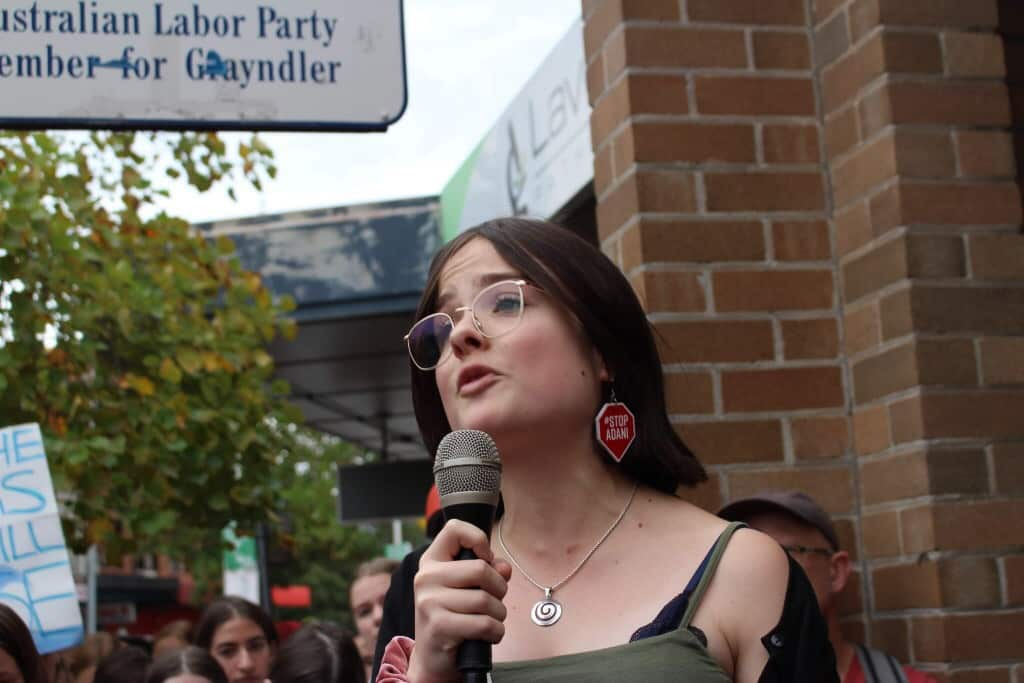
Daisy Jeffrey, 17, speaks at a previous climate action rally. Source: Supplied
Ms McGilvray, who works in communications, believes watching the children take the lead in calling for greater climate action has given parents ”an excuse” to act.
“Before Daisy became involved in the climate strike at the end of last year, I think I was like most parents; I followed the news about climate change so I knew some of the facts, and I was concerned, and I thought that maybe we should be doing a little more about it, but I hadn't actually taken any action myself,” she said.
“I’ve been really spurred to be more active by seeing how effective the kids have been and seeing the passion they have for a better future.”
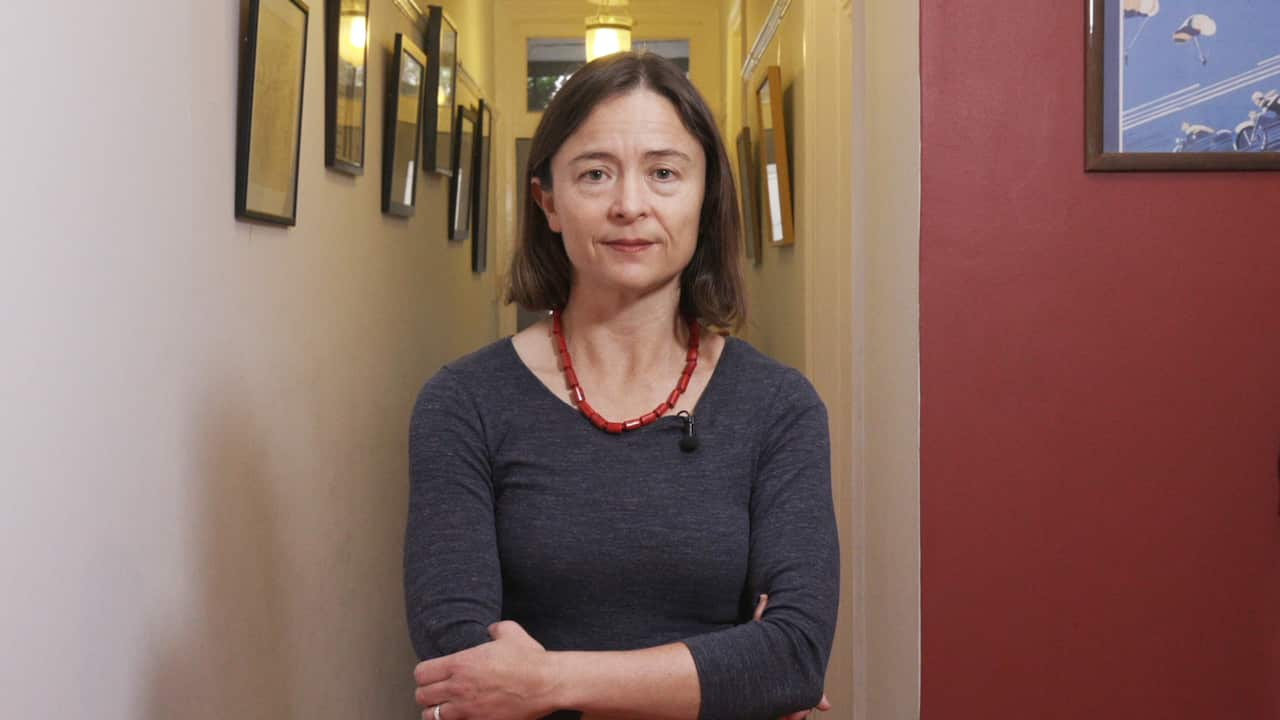
Annabell said she was inspired to get involved with climate action after seeing the kids take to the street. Source: SBS News
Prime Minister Scott Morrison came under fire last week after it was announced he would not be attending the UN Secretary-General's Climate Action Summit in New York next week, despite being in the US at the same time. Foreign Minister Marise Payne and Australian ambassador for the environment, Patrick Suckling, are expected to attend in his place.
In a statement to SBS News, Minister for Education Dan Tehan reiterated the government’s stance that “politics should be kept out of the classroom”.
“While protesters will miss a third day of school this year, student results for Years 7 and 9 NAPLAN writing tests are below the 2011 test benchmark,” he said.
“Students should be active citizens but their education shouldn’t suffer as a result ... The true test of the protesters’ commitment would be how many turned up for a protest held on a Saturday afternoon.”
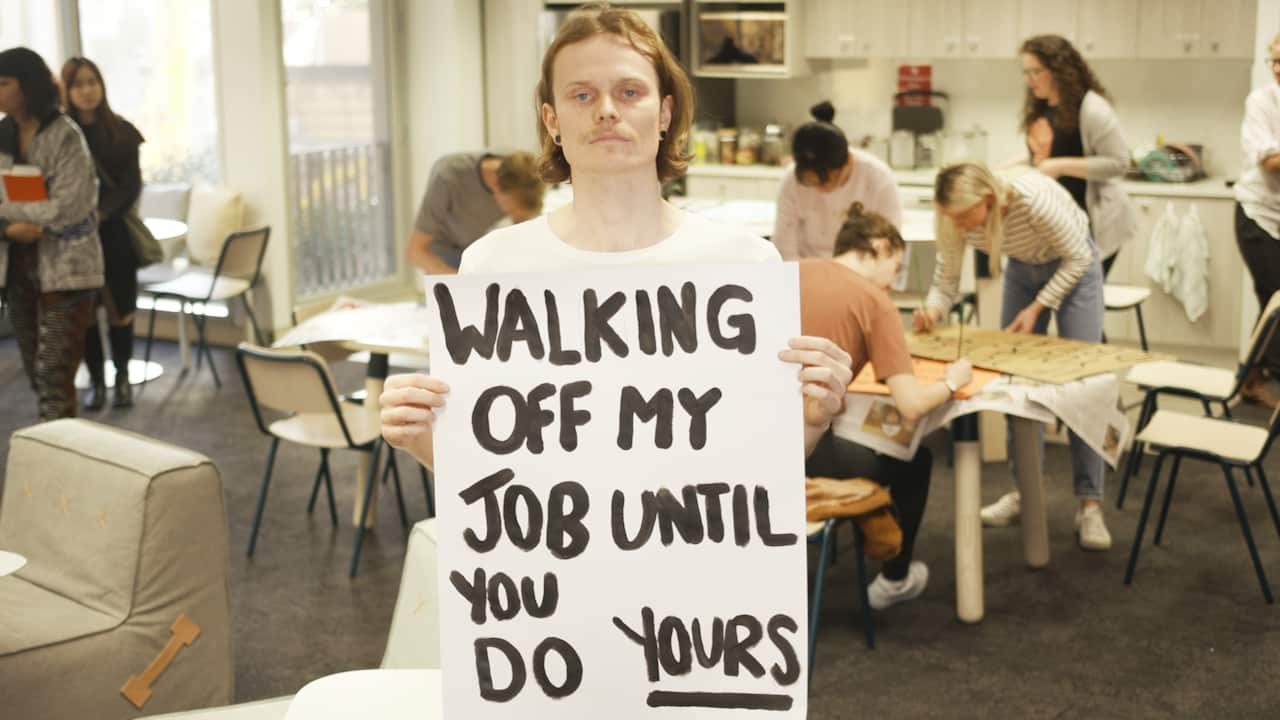
An employee of Future Super with the sign he created for the strike. Source: SBS News
Daisy said she would rather not have to be on the streets in the first place.
“I don’t want to be striking, to be honest, I’d much rather be in school learning with my friends,” she said.
“But because of the science we’ve actually learnt and because we are listening to it, we understand that we only have a very limited time left to take drastic action … sometimes, that can be really depressing.
“There have been times when I’ve just sat in my room and cried.”
Striking: The university students and their tutors
It won’t be just school students missing out on their studies on Friday; a number of university students have also pledged to and encouraging their tutors to do the same.
At the University of New South Wales (UNSW), the Student Representative Council (SRC) has organised buses to take students from campus to the Sydney rally.
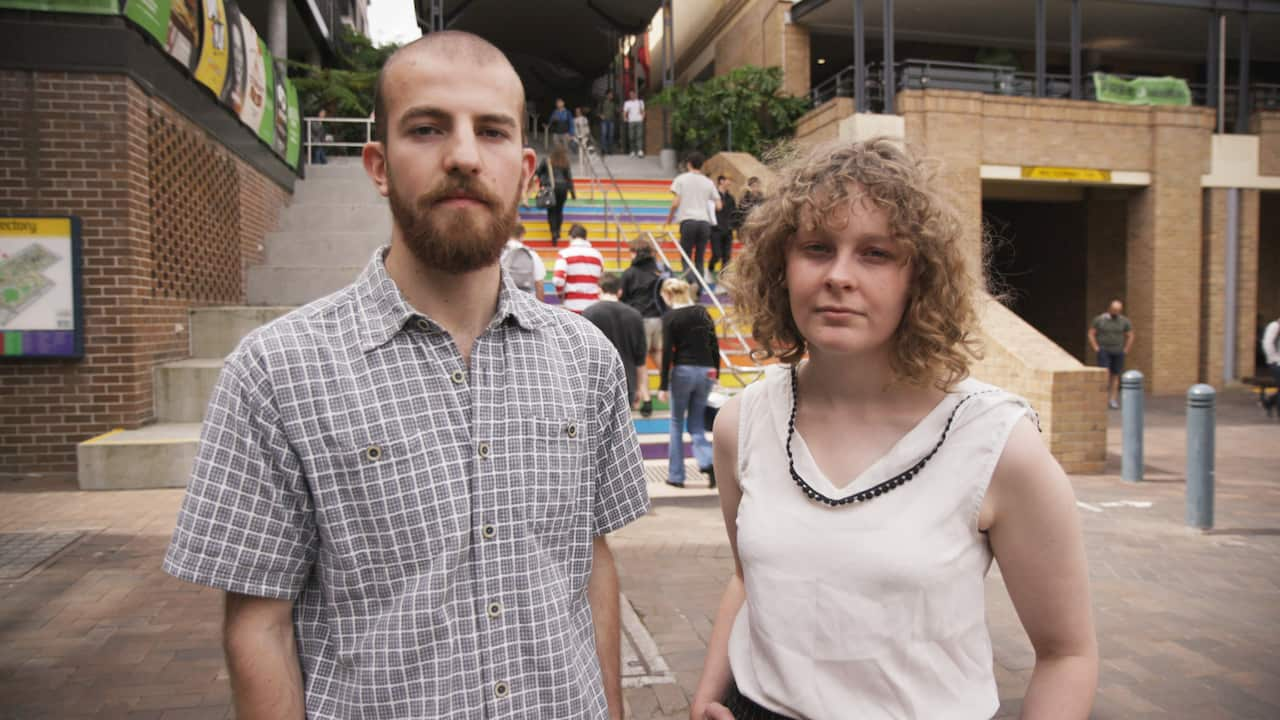
UNSW student leaders Angela Griffin, 22, and Jack Poppert, 23. Source: SBS News
“We want to spend the money to get students there so they can participate,” SRC President Angela Griffin, 22, told SBS News.
The social research and policy student will be joining the strike, she said, because she is concerned about the number of jobs that will be available in the future without climate action.
“When you’re at a university you’re planning for the future. I think for a lot of young people, that future does feel a little tenuous,” she said.
“We’re all trying to get a job, but there are no jobs on a dead planet.”
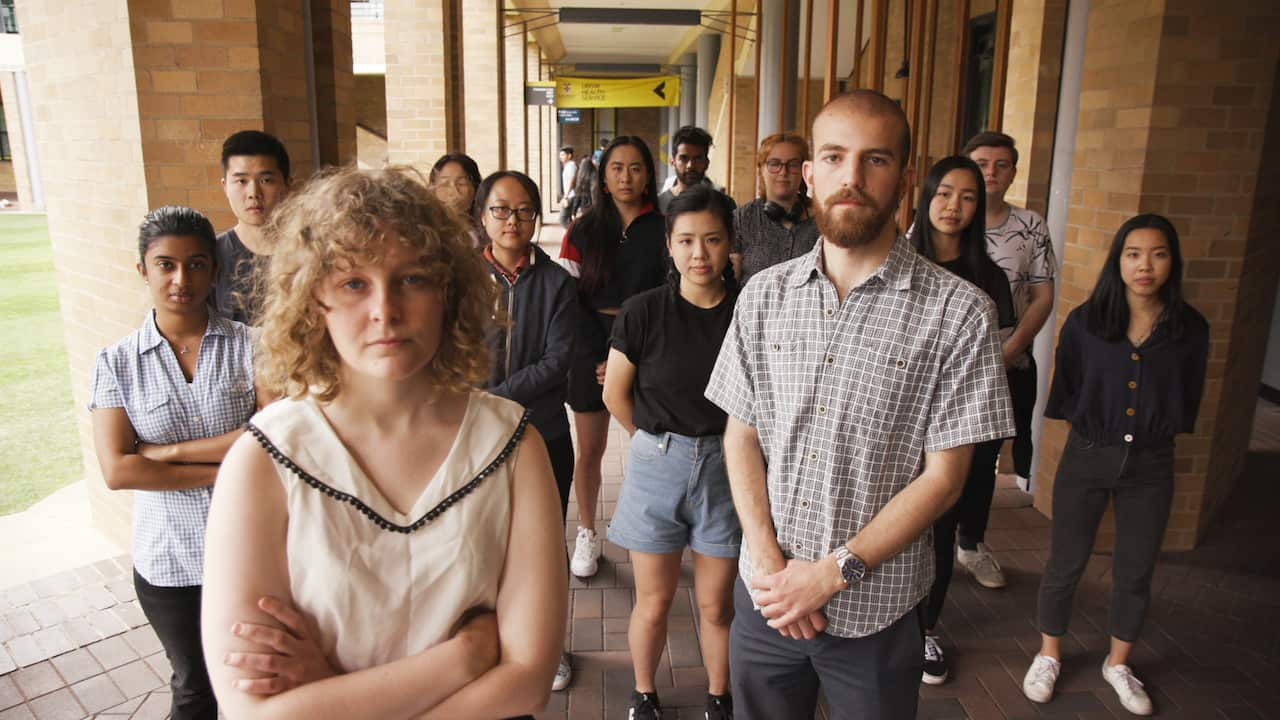
UNSW students will be attending the rally in Sydney to support the high school students. Source: SBS News
Angela said UNSW students have been informed they will be supported to strike by their lecturers, but with the caveat that it is up to the course convenors whether students will be marked down for non-attendance. She believes most will encourage their students to go along.
The National Tertiary Education Union, which represents teachers and lecturers working at universities, told SBS News it was supporting the strikes.
"We are encouraging our members to take appropriate leave or make necessary arrangements with their employers to attend [the strike] because we believe it is that important," national president Dr Alison Barnes said.
Federal president of the Australian Education Union, Correna Haythorpe, also told SBS News it would stand in solidarity with students wishing to strike.
"[The AEU] will work with education departments to ensure that students who wish to participate in the student strike planned for 20 September 2019 are afforded their democratic rights and can do so safely," she said.
"We believe that our students have a fundamental right to raise their voices about the challenges created by the Morrison government’s inaction to address or even acknowledge the full extent of the impact of climate change in Australia.”
Another UNSW student, art and design president Jack Poppert, said it is “disturbing” to see climate action becoming an ideological issue.
“[The strike] is a message to politicians, but it goes beyond politics … It’s about what we do with our waste, how we run our households, it’s about how we view the land and what we think we should be doing with it,” the 23-year-old said.
“This is an existential issue and it’s of imminent importance.”
'Government’s attention already on climate action'
Minister for the Environment Sussan Ley told SBS News the government was already taking “meaningful action” on tackling climate change, working with scientists, and committing resources towards the effort.
“If the point of the protest is to draw our attention to climate change, I would assure them that our attention is already there,” she said.
“People are right to be worried about global climate change but the government is focussed on the issue and will continue to be part of a global and local response.”
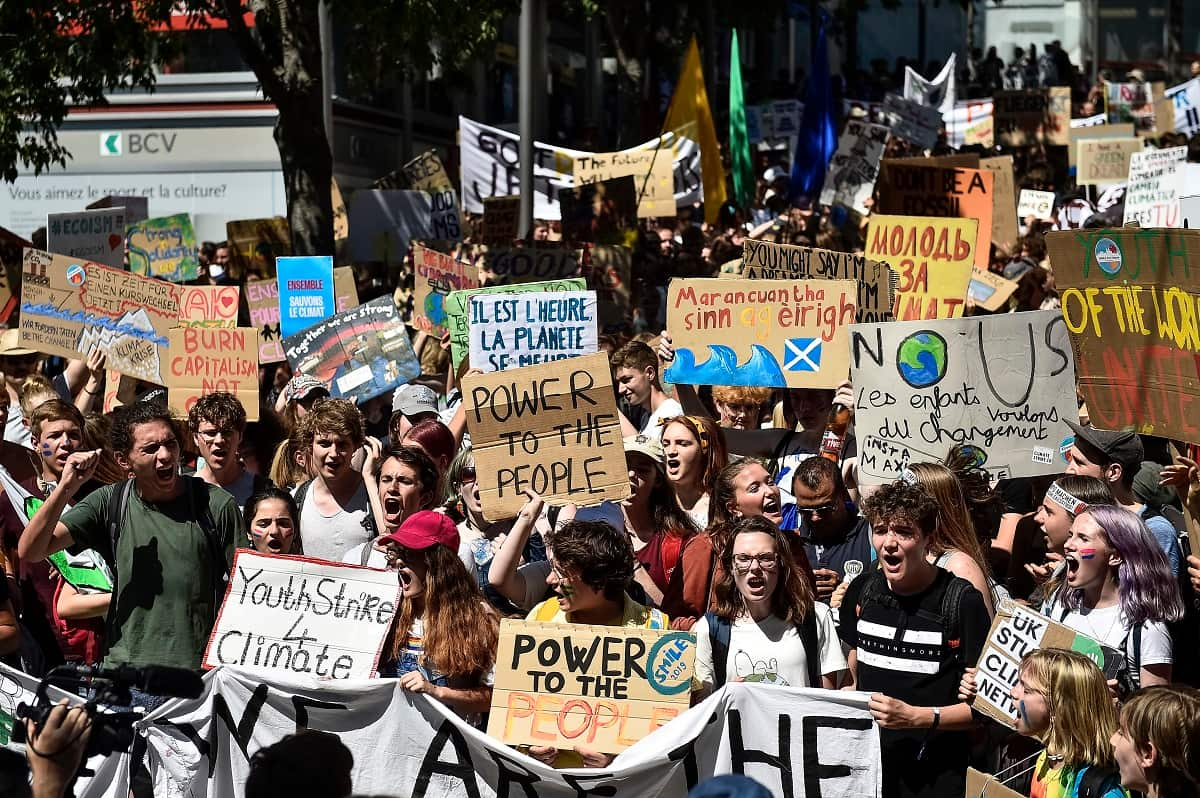
The climate strike in Sydney, earlier this year. Source: LightRocket
Ms Ley listed the government’s $3.5 billion climate solutions package and a $25 billion of committed investment in clean energy as examples of action the government is taking.
“In 2018, Australia led the world in clean energy investment, with more than double the per-capita investment of countries like France, Germany and the United Kingdom,” she said.
While they are ready to add their support to the climate movement, Mr Sheikh, Ms McGilvray and the university students all agree that the strike’s success so far has been due to the effort of the children.
“It’s amazing that high schoolers are leading this,” student Mr Poppert said.
“We’re playing catch up.”

